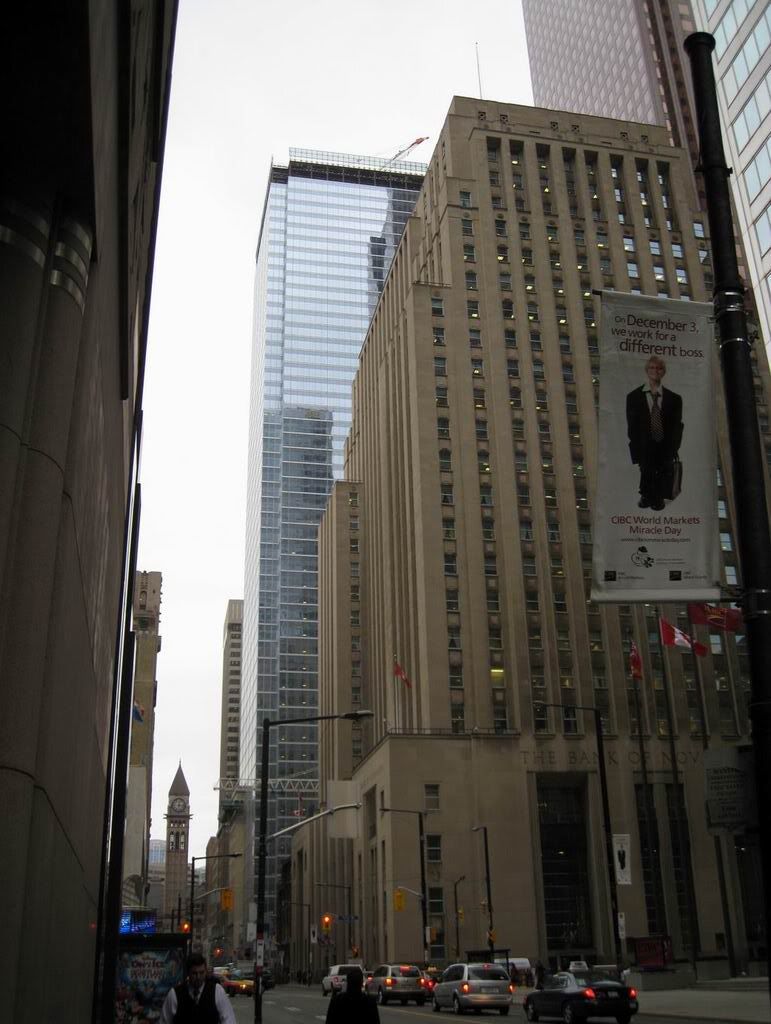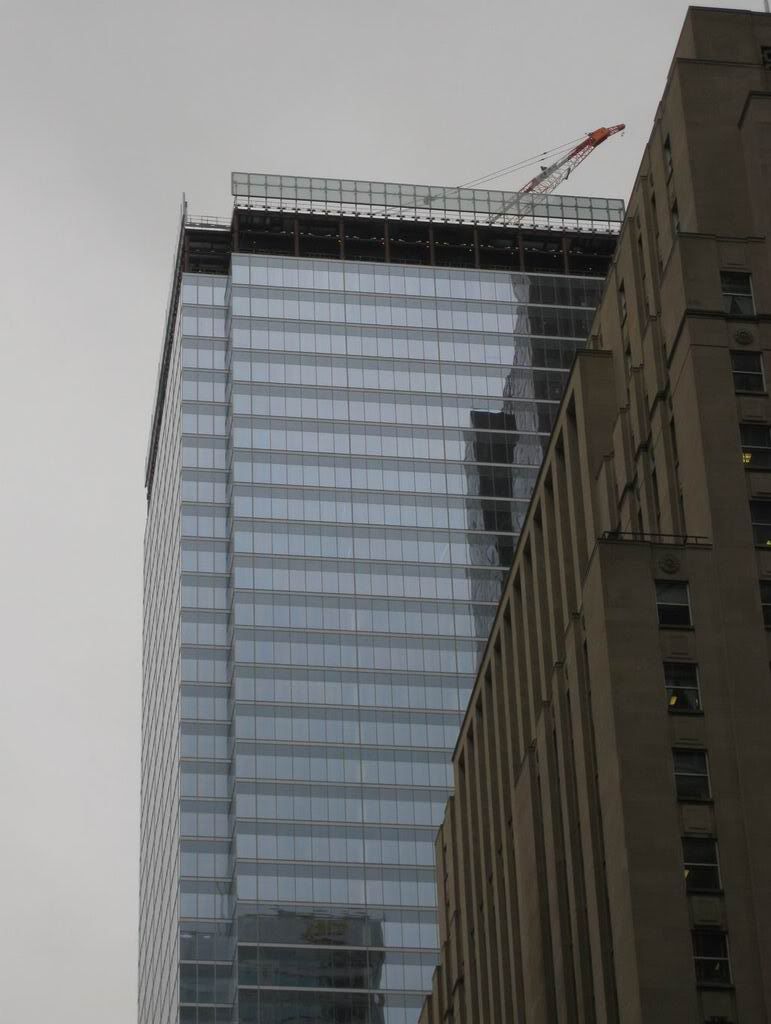I'm not sure if this is really new information, but...
Credit shortage chokes office building boom
LORI MCLEOD
From Tuesday's Globe and Mail
November 24, 2008 at 10:18 PM EST
The Canadian office building boom has run into a wall.
Hit by a shortage of funds, many borrowers can't get loans for construction or mortgages. That means a number of proposed projects are being put back on the shelf to wait for better days.
Even well-capitalized companies including Brookfield Properties Corp., one of the country's largest owners of high-quality office buildings, are becoming more conservative about new projects.
“I think it's reasonable for anybody who has a proposed development or a development in the initial stages, that they are re-evaluating whether to go or not to go ahead. That will likely be driven by what kind of leasing they have in place,†said Tom Farley, president of Canadian commercial operations at Brookfield Properties.
Brookfield has two Canadian projects under construction, Toronto's Bay Adelaide Centre and Bankers Court in Calgary.
The Bay Adelaide project was given the green light when it was 25 per cent preleased, Mr. Farley said. The building is now 75 per cent preleased and scheduled for completion next year.
For any new projects, however, Brookfield will seek preleasing levels of between 40 to 60 per cent. This includes the proposed second phase of Bay Adelaide, Mr. Farley said.
“Now is not the time to build on [speculation],†he added.
Other property developers appear to share this view. At a recent industry event, a representative of SITQ, a real estate subsidiary of the Caisse de dépôt et placement du Québec, said the pension fund will likely develop a planned office project at 45 Bay St. in Toronto during the next round of real estate construction, expected around 2015.
In the past, SITQ has had a higher tolerance for risk than some other developers, building projects on speculation, or without preleasing, in cities including Paris, France, and Calgary.
One of these projects, the first phase of Calgary's Eighth Avenue Place, is now under construction. Bets in the industry are that most new projects, including the second phase of that development, will likely be put on hold for the time being.
“The cost means it makes more sense right now for the strong players to build liquidity and get ready to buy cheap when people's mortgages come due,†said Michael Smith, an analyst at National Bank Financial.
A dearth of available funds in the Canadian commercial mortgage market, which is valued at an estimated $15-billion, has been driving up borrowing costs for those who can raise capital, despite falling interest rates.
Much of the problem is fallout from the global credit crisis, which has choked off one of the industry's key funding sources, commercial mortgage-backed securities. Fears about commercial mortgage defaults in the United States are now indirectly causing more pain.
After months of stability, the cost of default protection on high-quality mortgage bonds has soared, according to the CMBX Markit index. That's partly being driven by news that two commercial mortgage borrowers in the United States are expected to default on loans made to them by JPMorgan Chase & Co., valued at $334-million (U.S.).
“If lenders start seeing more defaults in the U.S., the typical bank or [life insurance company] in Canada can't help but be nervous about some spillover. The U.S. is a leading indicator. We know there's already been spillover in residential, and it's not hard to draw that line from residential to commercial,†Mr. Smith said.
With the end of the year approaching, many traditional real estate lenders – banks, life insurance companies and pension funds – have already dramatically reduced their financing activities.
A drop in the value of public equities means many pension funds have soared past their target allocations in real estate, with some even being forced to sell off holdings to achieve their required asset mix.
The Caisse, for example, has been one of the country's most prominent real estate lenders. But it recently said it would scale back real estate and private equity investing as a result of its stock market losses.
A big question is whether there will be more capital available for borrowers next year when lenders are working with fresh budgets, said John O'Bryan, vice-chairman, Canada, at CB Richard Ellis.
Despite rumours that some office projects now being built will get scaled back, most have secured construction financing and will get finished, Mr. O'Bryan said.
Developers are contractually obligated to lessors, contractors and equipment suppliers, and trying to halt a project can actually be more expensive than finishing it, he added.
One high-profile project without financing is EnCana Corp.'s new head office in Calgary, owned by H&R Real Estate Investment Trust. H&R recently said it will consider selling assets to fund the project, and one analyst has suggested a major distribution cut could be on the horizon.











